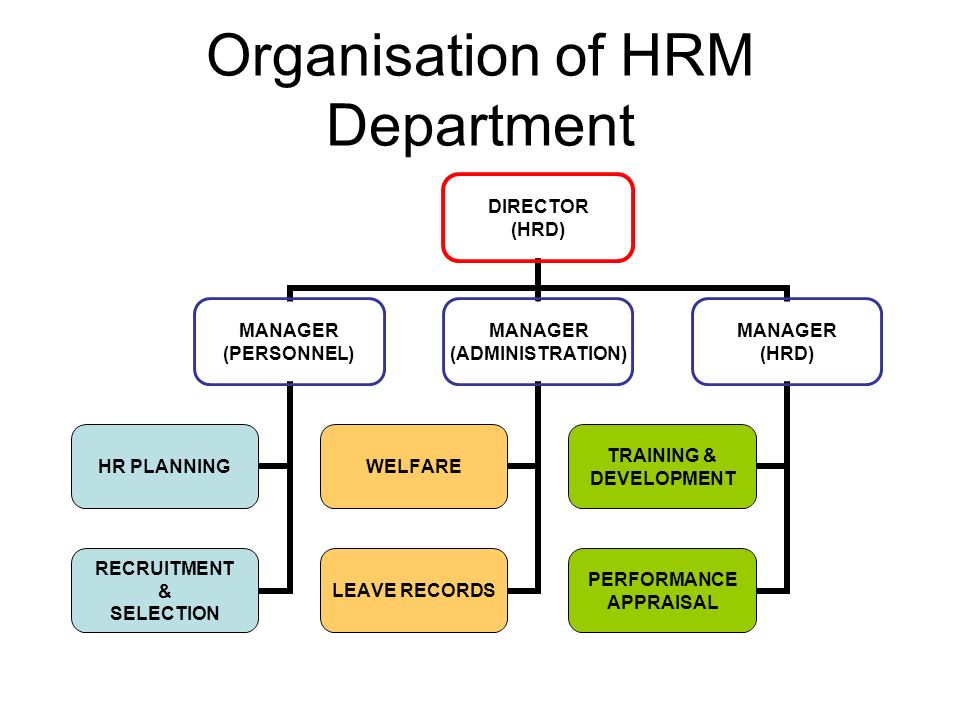Human Resource Management is a Fundamental Fact of Every Successful Business
What is the
Human Resource Management (HRM)
Human Resource Management (HRM) is the process of managing people in an
organization to achieve its objectives. It involves recruiting and
hiring employees, providing training and development opportunities,
setting compensation and benefits, managing performance, and fostering
positive employee relations. HRM ensures that an organization has the
right people, with the right skills, in the right positions, at the
right time, and at the right cost to achieve its goals. Essentially, HRM
is about managing the most valuable resource of an organization - its
people.
Human Resource Management is a Fundamental Fact of Every Successful
Business
Human Resource Management (HRM) is a fundamental fact of every
successful business. It is a strategic approach to managing an
organization's most valuable asset - its employees. According to Gary
Dessler, a renowned author of HRM textbooks, "A company's human
resources are its competitive advantage. They cannot be duplicated. They
can only be imitated" (Dessler, 2017). The quote clearly emphasizes the
significance of human resource management in an organization's success.
Human resource management is a broad field that includes various
functions, such as recruitment, training and development, compensation
and benefits, performance management, and employee relations. Each
function plays a critical role in building a competent and productive
workforce. For instance, recruitment is essential for identifying and
hiring talented individuals, training and development helps employees
acquire new skills and knowledge, compensation and benefits attract and
retain the best employees, performance management provides feedback for
improvement, and employee relations foster a positive work environment.
 |
| Ex.Chart of HRM Department organizing |
Effective human resource management is vital for every organization,
regardless of its size or industry. A study conducted by the Society for
Human Resource Management (SHRM) found that "organizations with
effective HR practices achieve better financial results and higher
employee engagement and retention rates than those without" (SHRM,
2019). Additionally, it is crucial for HR managers to align their
strategies with the organization's goals and objectives. As Robert L.
Mathis and John H. Jackson state in their book Human Resource
Management, "Human resources strategies should support the
organization's overall strategy, and HR programs should be designed to
contribute to the achievement of the organization's goals" (Mathis and
Jackson, 2021).
One of the critical aspects of human resource management is employee
engagement. Engaged employees are those who are committed to their work
and feel a sense of ownership and belonging towards the organization. A
study conducted by Gallup found that "companies with engaged employees
outperform those without by 202%" (Gallup, 2017). Engaged employees are
more productive, innovative, and loyal, which leads to better
organizational outcomes.
Another important function of human resource management is diversity and
inclusion. A diverse and inclusive workforce can improve organizational
performance and foster innovation. According to Josh Bersin, a global
industry analyst, "Diversity and inclusion are not just feel-good HR
initiatives. They are essential components of innovation, productivity,
and profitability" (Bersin, 2020). By embracing diversity and promoting
inclusivity, organizations can tap into a wider talent pool and create a
culture of respect and belonging.
In conclusion, human resource management is a fundamental fact
of every successful business. It is a strategic approach to managing an
organization's most valuable asset - its employees. Effective human
resource management is vital for every organization, regardless of its
size or
industry. It includes various functions such as recruitment, training
and
development, compensation and benefits, performance management, and
employee relations. HR managers must align their strategies with the
organization's goals and objectives to contribute to its success.
Employee engagement and diversity and inclusion are also crucial aspects
of human resource management that can lead to better organizational
outcomes. In today's competitive business environment, companies that
prioritize their human resources and invest in effective HR practices
are more likely to achieve long-term success.
Reference :
- Dessler, G. (2017). Human resource management. Pearson. [book(PDF)]
- Society for Human Resource Management. (2019). The business case for HR. Retrieved from https://www.shrm.org/hr-today/
trends-and-forecasting/ research-and-surveys/ Documents/SHRM%20Business% 20Case%20for%20HR%202019.pdf (online) [Accessed 22 3 2023] - Mathis, R. L., & Jackson, J. H. (2021). Human resource management. Cengage. [book(PDF)]
- Gallup. (2017). State of the global workplace. Retrieved from https://www.gallup.com/
workplace/238079/state-global- workplace-2017.aspx (online) [Accessed 22 3 2023] - Bersin, J. (2020). Diversity, equity, and inclusion: A call to action for HR. Retrieved from https://joshbersin.com/2020/
06/diversity-equity-and- inclusion-a-call-to-action- for-hr/ (online) [Accessed 22 3 2023] - https://www.datatrained.com/post/wp-content/uploads/2023/01/Adobe-HRM-scaled.jpeg(heading image)
- https://www.hrmexam.com/wp-content/uploads/2021/11/3.jpg(image)
- https://slideplayer.com/slide/10668654/36/images/33/Organisation+of+HRM+Department.jpg (image)


thanks for sharing regards to HRM the purpose of human resource management is to safeguard both the business and its employees. As a risk management professional assist in minimizing the risk to the organization by using statistical analysis, business legal expertise, and general practice and policy improvement.
ReplyDeletethank you your valuable comment..
ReplyDeleteHRM is essensial thing for organization.you have explained it well
ReplyDeleteHRM is one of the most important factors for an organization to be a success. Human resources to be considered as an asset to the company rather than a variable cost.
ReplyDeleteThis is an essential Topic to talk.Good job !
ReplyDeletevery well done.
ReplyDeleteWow very nicely written. I wonder how you taken the image and writings side by side. I tried but failed. Anyway the contents of the post is really usefull for our own studies. Really good presentation. thank you
ReplyDeleteOne of the key benefits of effective HRM is the ability to align the organization's goals with its human resources.
ReplyDelete